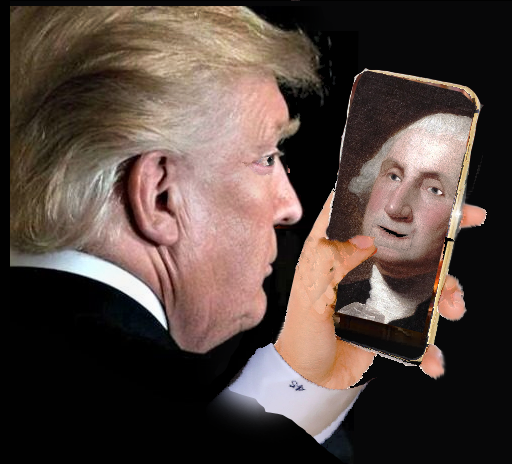 Barack Obama embroiders on the myth of his ultimate predecessor as a leader willing to forego royal robes. As with most myths, the story is more valuable than the truth!
Barack Obama embroiders on the myth of his ultimate predecessor as a leader willing to forego royal robes. As with most myths, the story is more valuable than the truth!
The tradition goes back to George Washington. “After he led the colonies to victory as General Washington, there were no constraints on him … no democratic norms that guided what he should or could do. (Washington)could have made himself, potentially, president for life. Instead, he resigned as commander in chief and moved back to his country estate. Six years later, he was elected president, but after two terms, he resigned again and rode off into the sunset.”
Perhaps but that is not what actually happened. Washington did not want a crown, but he did see himself as leader of an oligarchy. If it were not for Burr’s duel with Hamilton, we might have ended up another failed effort at a democracy.
Over at Poltico, Jonathan Horn tells the disturbing story of Washington’s failed fight to block efforts by Jefferson and the Virginians to create what we now understand as a democracy.
The newspapers and handbills of the 18th century America were very much like today’s social media … full of anonymous and often fake news. Washington’s vision of a one-party state quickly failed and Jefferson’s party, the ancestor of today’s Democratic Party, tuned to revolutionary France for help, meddling in the elections. These new forms of partisan media evoked calls of fake news and demands for regulation. For those following Trump’s Ukraine scandal, the XYZ Affair should be familiar. The government of revolutionary France, then the world’s mightiest military power, wanted a formal reception to recognize their relationship to the fledgling American republic. The Federalists, that is Washington’s party, called France’s preconditions bribery and refused to pay.
Washington considered resuming the role pg Commander in Chief. As Horn relates, the revered first President ” worried what people would say if he violated that pledge. Would they “denounce” his return as “a restless act, evincive of discontent in retirement. … Washington decided that he could not “remain an idle spectator” when what lay in peril was “everything sacred and dear to freemen.”
Washington did not see himself as actually heading this new army. He saw this as a way of appointing Hamilton as the head of a domestic army able to control the new country. This angered Jefferson and led to his running for the Presidency as a Democrat-Republican, America’s first political party.
Washington’s turn to the right was severe. He openly identified as a member of a political party (the Federalists) and supported the Alien and Sedition Acts, which the government used to imprison the sort of journalists who had attacked his character while in office. The ex-President, met with Jefferson and a yelling match followed. Jefferson left very disturbed at this behaviors by a man he regarded as a hero. For his part, Washington ceased all communication with the three Virginians who would lead the US in our founding years, Thomas Jefferson, James Madison, and James Monroe.
Read the full article at Politico